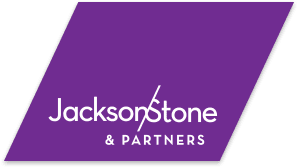What does a modern leader look like?
Instagram, the online media sharing application, has reached 1 billion downloads recently on the Google Play store. The milestone is nothing to shrug at, with only 19 other applications reaching the summit. Alongside Instagram, both Facebook and WhatsApp make the club, with Gmail, Google Maps and YouTube all hitting the mark.
Millennials believe leadership development can help them grow.
Instagram, like Facebook and Airbnb, has not only carved out new markets but has also helped reorientate the global economy around technology. While these companies span multiple industries, they do have one thing in common: Millennials serve as both their founders and leaders.
Figures from Statistics New Zealand show that millennials are the largest single age group in the country's labour force. So as millennial numbers continue to grow, graduate and enter the New Zealand workforce, we can expect to see a larger inflow of millennials into leadership positions over the next few years.
With them will come a number of different leadership styles and management skills. So what can we expect from millennial leaders, and how will they differ from Gen Xs and the Baby Boomers that came before?
Millennial growth in New Zealand and around the world
The expectation of the millennial generation has been felt unevenly across the commercial landscape. On the one hand, many are enthused by the upbeat, driven and technologically adept characteristics millennials are said to have. On the other, some parties are worried about the impact they may have on the culture and business models of companies and even whole markets.
In response, a number of surveys have been conducted to understand the segment. PwC for instance worked with two universities on a two-year survey to find out what makes millennials tick. With the report showing that millennials will make up 50 per cent of the global workforce by 2020, understanding them is not a bad idea.
The report discovered six key points about millennial employees:
- A work/life balance is more important than excessive work demands.
- Greater flexibility at work can help productivity.
- Workplace culture is essential and must be based on teamwork and community.
- Moving between jobs and face-to-face communication are essential to advancement.
- Millennial values and attitudes are not distributed equally around the world.
- Respect, appreciation and support are important to retention.
The points laid out by PwC's report align with those of other companies, such as Deloitte's and McKinsey's Millennial Surveys.
The studies show that companies and other employers need to address the challenges of future employment by understanding the millennial worldview. Organisations need to be aware of the upheaval millennial employees will bring to the traditional strategies and paradigms that characterise work.
However, there is also another aspect of this generation that tends to be forgotten: The increasing presence of millennial leaders.
 Millennials are becoming more and more important to leadership teams.
Millennials are becoming more and more important to leadership teams.Rising role of millennials in leadership
As millennials continue to enter the New Zealand workforce, there is a growing consideration that many will bring new leadership qualities to leadership positions. If not now, then in the near future.
This is partially driven by millennials' desire for leadership roles. The Hartford's 2015 Millennial Leadership Survey found that 69 per cent of millennials aspire to be leaders in the next five years.
So what can we expect from millennial leaders? One of their defining factors is impatience. Due to technological stimulation, many millennials expect instant gratification. This translates into a need for instant results, be it with customers, spreadsheets or suppliers.
When it comes to leadership, this impatience can be harnessed to ensure strong results. It all comes down to focus.
A primary task of leadership involves directing attention. To accomplish this, a leader must first learn to focus their own attention.
In a recent Harvard Business Review article from Rutgers' Daniel Goleman, the author articulates the need to find a balance between a focus on yourself, others and the wider world. He believes the first two can cultivate the primary elements of emotional intelligence, while the third improves the ability to devise strategy, innovate and govern.
 Collaboration is a fundamental characteristic of millennial leadership.
Collaboration is a fundamental characteristic of millennial leadership.Collaborative relationships in the workplace
Alongside focus, millennial leaders are also apt at creating strong relationships in the workplace, with the aim of cultivating a collaborative environment. With the increasing focus on innovation, collaborative relationships and a culture that celebrates co-innovation is valuable.
The sharing economy and crowdfunding are indicative of the emphasis millennials place on collaboration. As leaders, there is an expectation that culture and relationships will be based on these elements. By leveraging their instincts to bring others together, millennial leaders will have an advantage in the fast-changing markets of today and tomorrow.
With the growing rate at which millennials become leaders, leadership teams will become a very diverse group. Representing different points of view, leaders will bring a range of expertise, experiences, generations and industries to the (boardroom) table.
For New Zealand leadership teams, the task ahead will not be easy. Members will need to navigate the different nuances, competencies and principles inherent within diverse groups. However, the benefits of embracing, understanding and collaborating with different members ultimately outweigh the negatives.



